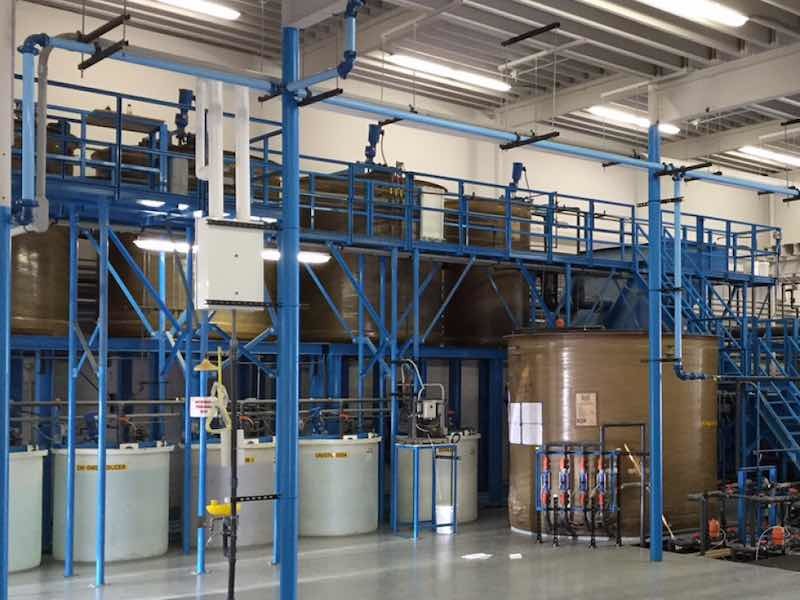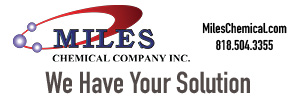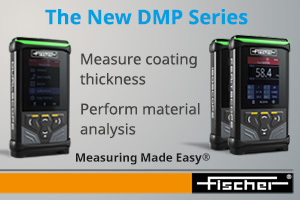The substitution of decorative hexavalent chromium plating systems with trivalent chromium-based equivalents will become a reality in Europe and many other global regions over the next few years.
These modern trivalent plating processes offer some major technical advantages over legacy hexavalent systems and despite being generally more expensive chemistry, their technical performance, plating speed and most importantly their appearance is now as good, if not better than hexavalent systems.
However, there is one issue that has remained unsolved until now… wastewater treatment.
Modern Trivalent Chromium
 Terry ClarkeTrivalent chromium electroplating processes use tightly complexed trivalent chromium within the process chemistry to ensure efficient deposition but making wastewater treatment difficult. While some complexes respond slowly to low pH treatment, others remain in solution. Conversely, some of the chromium complexes respond to higher pH treatment while others remain unaffected.
Terry ClarkeTrivalent chromium electroplating processes use tightly complexed trivalent chromium within the process chemistry to ensure efficient deposition but making wastewater treatment difficult. While some complexes respond slowly to low pH treatment, others remain in solution. Conversely, some of the chromium complexes respond to higher pH treatment while others remain unaffected.
Adjusting the pH through both high and low ranges does not liberate all complexed chromium ions, which is why conventional treatments are often only partially effective.
A further complication is that trivalent chemistry from different suppliers can utilize a range of complexing agents, which can further compromise chemical treatment.
It's a Complex Situation
Unlike traditional hexavalent chemistry, trivalent chromium requires complexation with organic acids before it can be used for electroplating.
During the manufacturing process of Trivalent chromium systems, multiple complexes are formed when mixed and heated with organic acids. These complexes have varying levels of chemical stability and plating efficiency, which are impacted by process operating conditions. However, they generally perform well over long production periods and offer the surface finishing industry a much more user-friendly chemical environment.
But as with many processes containing complexed metals, they can be difficult to waste treat, especially when production volumes grow beyond PPAP or early adoption testing levels. Most existing wastewater treatment plants designed to treat hexavalent chromium rinses do so using simple chromium reduction followed by pH driven precipitation. Not so with trivalent chromium electroplating wastewater.
Both rinse waters and any decanted concentrates cannot be successfully treated, in volume, without additional equipment and chemical steps.
Trivalent Chromium Waste Treatment
There are multiple ways to treat the trivalent chromium wastewater. Dosing with fairly large volumes of metal precipitant plus hydrated lime can be effective with some systems.
Other options include UV oxidation, which results in a significant investment in equipment plus the additional cost of chemistry (peroxide) and storage for batch treatment.
These techniques can be used for diluted rinse water but become more challenging for concentrates.
A New Selective Removal Approach – EnvioTRI
When looking at the options for trivalent chromium treatment, researchers at MacDermid Envio Solutions (MES) concluded that selective removal of complexed trivalent chromium may be a more practical and economic approach.
By utilizing specialized filters, running in a continuous loop, trivalent chromium and much of the excess complexors can be selectively removed and concentrated. This produces a chromium-free bulk wastewater stream that can be fed directly to existing chemical treatment and a low-volume high-concentrate waste that can be sent for off-site disposal.
The system has a very small operating footprint, low energy usage and can be fully automated.
During its trial operation, the new system was capable of removing 99.5% of the trivalent chromium from wastewater streams, while producing a wastewater flow that when fed into the existing chemical neutralization and precipitation system, resulted in final discharge chromium levels below 0.5ppm.
Bringing together this chemical formulation knowledge along with wastewater treatment expertise at MacDermid Envio Solutions, our research team are currently refining this new method for trivalent chromium wastewater treatment. Significant advances are being seen in treatment when chemical and equipment approaches are combined.
The Future of Wastewater Treatment for Surface Finishing
It is clear that advances in surface finishing will continue to challenge the brightest researchers to improve the safety of chemical processes and drive the performance improvements that end users demand.
As the toolbox of environmentally acceptable chemicals continues to shrink, the use of more complex chemistry is certain to be the best route to achieve these goals. In turn, we need to keep pace with new wastewater treatment approaches to avoid increasingly costly off-site and energy intensive wastewater treatment.
Finally, water used in surface finishing processing must be returned to the environment in a cleaner and more sustainable state.
Terry Clarke is Managing Director of MacDermid Envio Solutions. Visit https://macdermidenvio.com































